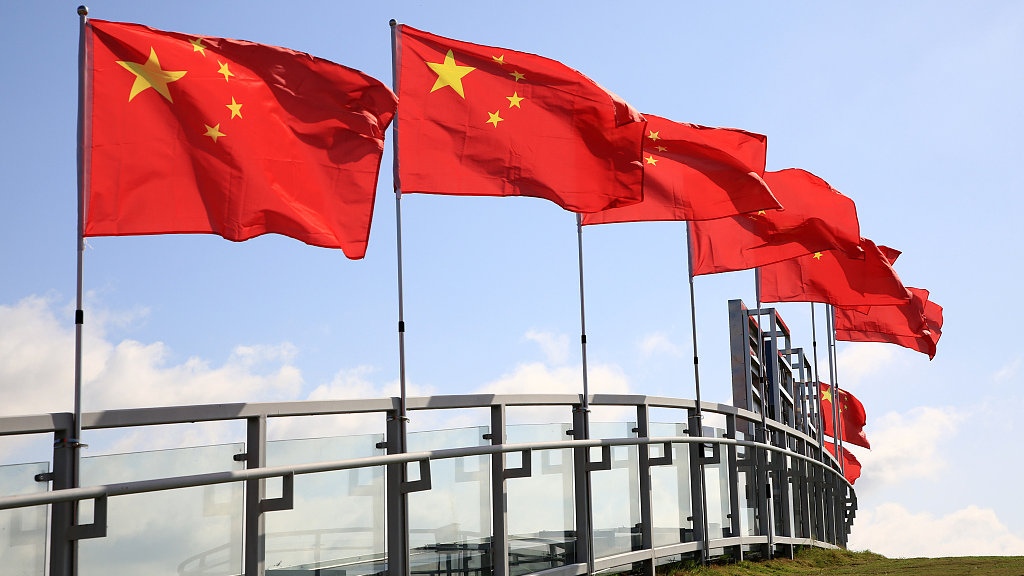
China's national flag. /CFP
China's national flag. /CFP
Editor's note: Daryl Guppy is an international financial technical analysis expert. He has provided weekly Shanghai Index analysis for Chinese mainland media for more than a decade. Guppy appears regularly on CNBC Asia and is known as "The Chart Man." He is a national board member of the Australia China Business Council. The article reflects the author's opinions and not necessarily the views of CGTN.
It's so obvious that China is not the West, but with an increasing sense of bitterness, some Western commentators are turning their backs on China because China has not become more like the West over the past decades. This expectation was never realistic, and it's a surprise that it has taken so long for U.S. commenters to understand this.
This disillusionment affects the way Western investors understand the recent changes in China's investment markets. These changes, including the crackdown on the number of hours children are allowed to engage in computer gaming, directly affect investments in Tencent and other Chinese games companies.
Other changes include the recent anti-monopoly action taken against Alibaba, DiDi Chuxing and other large, successful tech companies. The destruction of the school tutoring business model seems to Western investors to be yet another slide on a slippery slope away from Western capitalism.
The "clean up" of fandom culture is consistent with the suggestion that the rich should make larger contributions to society rather than amassing large fortunes for themselves. This is an idea of corporate social responsibility driven by the state. In Western markets, it's driven by shareholders and their environmental, social, and governance (ESG) agenda, and it finds lukewarm support from regulators.
The commentators are correct. It's all so un-American. On the other hand, it's all so Chinese.
Let's pick this conundrum apart because these approaches underpin many Western "investors'" beliefs about China and where to invest in China.
America favors individual achievements over any obligation to society. Philanthropy is a rich man's version of charity. It is not the same as social responsibility and is more often about tax avoidance than any genuine desire to contribute to society. Americans readily accept that it's OK for CEO salaries to be around 300 times higher than the average workers' salary.

Students attend an in-person class at a school in Los Angeles, California, U.S, April 13, 2021. /Xinhua
Students attend an in-person class at a school in Los Angeles, California, U.S, April 13, 2021. /Xinhua
Education in America is a playfield for private providers. State education services are consistently underfunded, so education is not an equal opportunity service. The accumulation of massive private wealth is seen as a worthy aspiration in the U.S. context.
Not surprisingly, American investors look for the same characteristics when they invest overseas and in China. These are the companies and the personalities they favor with funds because they mirror their own cultural expectations. These investors are rudely disappointed when they find that their expectations are not universally shared. Many investors and politicians remain quite resentful because when China grew economically it did not embrace American-style "liberal democracy."
The concern about irresponsible social media's role in undermining and usurping government is nowhere more clearly on display than in the United States. It lay at the heart of the White House insurrection attack. It has hindered COVID-19 public health messages and the ability to effectively roll out vaccines. Europe, Australia and others have all rapidly developed policies to curtail the power and activity of these groups and the powerful grip they are creating over the control of their big data resources.
China's approach is more direct, but ultimately China seeks the same solutions as the European Union. No government can tolerate the social media distortion of policy and essential information. No government can allow vital consumer information – big data – to be collected, sold and exploited by private companies for personal gain.
The message is clear: China has no desire to emulate many of the characteristics of America. Those who invest in China as they would in the U.S. will lose because the political and social environment is different. However, those who invest in China in companies and businesses that are socially responsible will avoid disappointments stemming from the new clutch of regulations.
(If you want to contribute and have specific expertise, please contact us at opinions@cgtn.com.)

